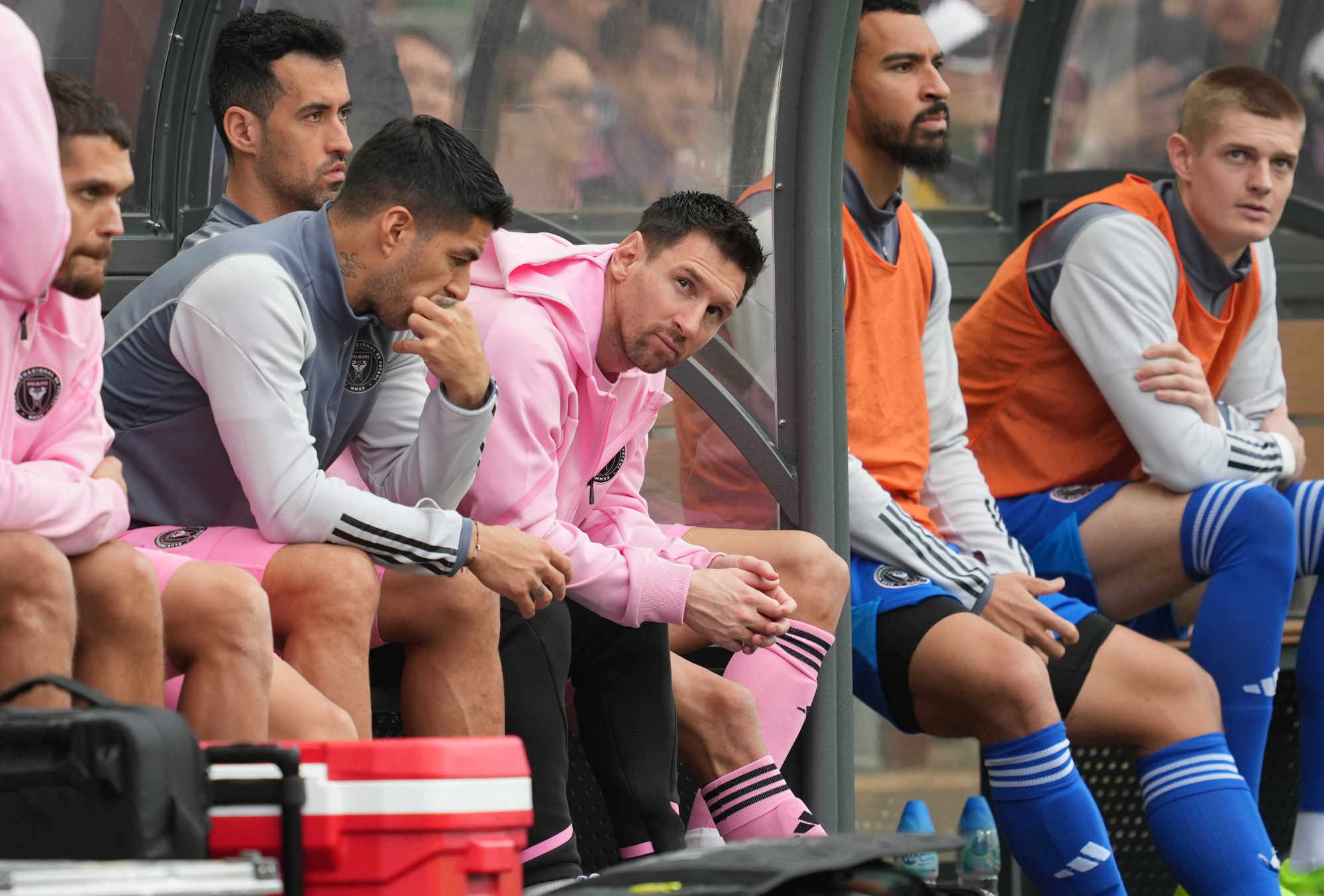
02:49
Football legend Lionel Messi denies Hong Kong sit-out was politically motivated
Football legend Lionel Messi takes aim at ‘false stories’ about Hong Kong no-show, dismisses rumours decision involved politics
- Soccer player posts two-minute video on Weibo offering further explanation on why he sat out match in Hong Kong earlier this month
- ‘I’ve heard people say that I didn’t want to play for political reasons and many other reasons that are totally untrue,’ he says
In a two-minute video released on the mainland Chinese social media platform Weibo at 9pm on Monday, Messi said he wanted to explain why he decided against joining his Inter Miami teammates on the pitch for the friendly against a local team on February 4.
The clip has attracted more than 41 million views as of Tuesday afternoon.
“I have read and heard many things that were said after the game in Hong Kong,” he said. “I wanted to record this video and give you the true version so that no one has to continue reading false stories.
“As you all know, I always want to play and be involved in every game. I’ve heard people say that I didn’t want to play for political reasons and many other reasons that are totally untrue. Had that been the case, I wouldn’t have even travelled to Japan or visited China as many times as I have.”

The match, organised by Tatler Asia, was shaping up to be one of the city’s biggest sporting events of the year, but Messi sat out the game, leaving tens of thousands of fans in the packed Hong Kong Stadium outraged and confused. He later cited thigh muscle inflammation as the reason he could not play, but took to the field just days after for a match in Japan.
Some local politicians and mainland Chinese newspaper the Global Times earlier said they viewed Messi not playing in the city’s match but taking part in the Tokyo game as a “calculated snub” and a “political move to embarrass” Hong Kong.
The 36-year-old reiterated in the video that an inflamed adductor muscle prevented him from playing and noted he took part in a training session the day before the match.
“I tried to train and made an effort for all those who’d come to watch training,” he said. “I did all I could. I also went along to the football clinic with all the kids. But I really couldn’t play. I felt discomfort and there was a risk it’d get worse.”
Messi also spoke about his personal affection for China and said he hoped to see his fans there again.
“Since the start of my career, I’ve had a very close and special relationship with China. I’ve done a lot of things in China – interviews, games and events,” he added.
“As always, I send good wishes to everyone in China who I’ve always had and continue to have special affection for. I hope to see you again soon. A big hug and take care. Ciao!”
The video was posted days after mainland sports authorities appeared to have ruled out an appearance by Messi next month. The Argentina national squad, captained by Messi, had scheduled a tour of China from March 18-26, which included friendly matches with Nigeria in Hangzhou and against the Ivory Coast in Beijing.
But the Beijing Football Association said on February 10 it had “no plans at the moment to host any matches involving Messi”.
On February 9, the Hangzhou Municipal Sports Bureau announced the cancellation of the friendly match between Argentina and Nigeria for reasons “known by everyone”.
The recent video by Messi has stirred intense debate among mainland and local internet users.
While many commentators expressed their dissatisfaction with the football star’s response, other Chinese fans defended him on Weibo.
A comment with 29,000 likes stated: “Messi is not apologising. He did not violate any contract or take a political stance. He simply responded to the fans who love him.”
Some mentioned his past donations to China during the 2007 Jinan floods and the Covid-19 pandemic.
“It is important to judge a person based on their actions rather than just their words,” said one comment with more than 20,000 likes. “Messi’s actions have already demonstrated his attitude towards China … We should welcome individuals who hold a friendly attitude towards China. It is important not to indiscriminately believe unfounded rumours created solely for the purpose of gaining attention.”
Hu Xijin, the outspoken former editor-in-chief of Global Times, said in a Weibo post on Monday night that he personally accepted Messi’s explanation in the video.
“Messi didn’t apologise in the video, but he provided a detailed account of the situation, ruling out political and other reasons. His attitude was quite sincere,” he said.
“After everyone has vented their emotions … I believe that the matter can be put to rest.
“However, it is indeed difficult for Messi to completely restore his image in Hong Kong and on the mainland . This is the cost he has to bear.”
His post has received 32,000 likes as of Tuesday afternoon.
Messi posted his first message about the Hong Kong fiasco on his Weibo account on February 7. He explained how the thigh pain had prevented him from joining the match and said he hoped his team could visit the city again and give its best to fans.


